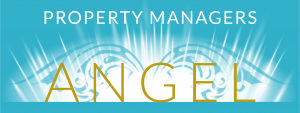The objective of the Healthy Homes Standards is just as its name suggests – to make homes healthy. Not only that, but these standards will also significantly benefit the health of tenants.
As of 1 July 2021, all rental properties must comply with these standards. Both tenants and landlords should familiarise themselves with the new standards.
Heating
The World Health Organisation recommends the minimum temperature of an indoor room be 18C. The Healthy Homes Standards recognises this statistic and has considered the amount of New Zealanders that are taken to hospital every year due to respiratory illnesses associated with cold homes.
To keep homes warmer and tenants healthier, the heating standard requires that living spaces in rental properties be equipt with heat pumps. The property’s occupants can easily control heat pumps to reach the WHO’s recommended temperature.
Insulation
All rental properties were required to have ceiling and underfloor insulation installed by 1 July 2019. However, it was later determined by the new government that this insulation requirement was not adequate enough to keep homes and tenants warm and healthy.
The new standard now requires insulation to be over a minimum R-value. This R-value varies depending on the property’s location:
Zones 1 and 2 R-values:
- Ceiling insulation must be at least 2.9
- Underfloor insulation must be at least 1.3
Zone 3:
- Ceiling insulation must be 3.3
- Underfloor insulation must be 1.3
Ventilation
Poor ventilation in a property can lead to an increased amount of damp and mould, which is unhealthy for tenants and causes severe and expensive damages to the property. Bathrooms and kitchens are especially prone to these sorts of damages.
The ventilation standard sets out to combat this by requiring landlords to install extractor fans in these rooms. These fans will significantly reduce accumulated damp and will increase the health of the property.
Moisture ingress and drainage
Speaking of damp, the biggest culprit of letting damp into a house comes from a subfloor or a cavity beneath the property.
If a property does have a suspended floor/subfloor, it will require a ground moisture barrier under the moisture ingress and drainage standard. This is typically a polythene sheet that will cover the floor and greatly reduce moisture from escaping into the home.
Properties with a ground moisture barrier installed before 1 July 2019 may not need a new one as long as it is in good working condition.
It must also be ensured that all gutters, downpipes, and drains are clear and in working order.
Draught stopping
Homes tend to get holes and cracks in them over time. It’s natural for buildings to deteriorate with age. However, it is important to keep up with managing the repairs to ensure the health of the building and the occupants.
Any gap or hole with a width greater than 3mm is considered unreasonable under the draught stopping standard and must be repaired. The easiest way to measure these gaps is to see if you can fit the edge of a $2 coin in – if you can, then the hole needs repairing.
While these gaps can be found anywhere within a home, they are generally found around windows and doors.
Penalty fees
The most significant impact of not complying with the Healthy Homes standards will be on financials. If a property is found non-compliant with the new regulations, landlords could be facing a fine of up to $4,000.
While also obligated to pay this monstrous fine, which typically will go to the tenant, landlords will also be ordered to get their property aligned with the standards immediately. This means property owners may have a very short window of time to arrange and install insulation, heat pumps, or ground moisture barrier, which could end up costing a lot more money and stress.
At Angel, we have an experienced team of property managers that are well versed in navigating rental laws and legislation and can assist you in understanding the Healthy Homes Standards. We can advise on trades if you need work carried out to get your property compliant and help with the record-keeping, statements, and tenancy agreement matters.

